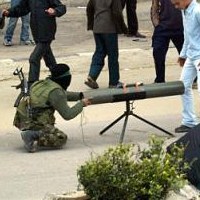Very disturbing story about acid-attacks on women in Islam dominated cultures. Must read!
Text by Jim Verhulst, Times’ Perspective editor | Photos by Emilio Morenatti, Associated Press
We typically think of terrorism as a political act.
But sometimes it’s very personal. It wasn’t a government or a guerrilla insurgency that threw acid on this woman’s face in Pakistan. It was a young man whom she had rejected for marriage. As the United States ponders what to do in Afghanistan — and for that matter, in Pakistan — it is wise to understand both the political and the personal, that the very ignorance and illiteracy and misogyny that create the climate for these acid attacks can and does bleed over into the political realm. Nicholas Kristof, the New York Times op-ed columnist who traveled to Pakistan last year to write about acid attacks, put it this way in an essay at the time: “I’ve been investigating such acid attacks, which are commonly used to terrorize and subjugate women and girls in a swath of Asia from Afghanistan through Cambodia (men are almost never attacked with acid). Because women usually don’t matter in this part of the world, their attackers are rarely prosecuted and acid sales are usually not controlled. It’s a kind of terrorism that becomes accepted as part of the background noise in the region. …
“Bangladesh has imposed controls on acid sales to curb such attacks, but otherwise it is fairly easy in Asia to walk into a shop and buy sulfuric or hydrochloric acid suitable for destroying a human face. Acid attacks and wife burnings are common in parts of Asia because the victims are the most voiceless in these societies: They are poor and female. The first step is simply for the world to take note, to give voice to these women.” Since 1994, a Pakistani activist who founded (the Progressive Women’s Association) to help such women “has documented 7,800 cases of women who were deliberately burned, scalded or subjected to acid attacks, just in the Islamabad area. In only 2 percent of those cases was anyone convicted.”
The geopolitical question is already hard enough: Should the United States commit more troops to Afghanistan and for what specific purpose? As American policymakers mull the options, here is a frame of reference that puts the tough choices in even starker relief: Are acid attacks a sign of just how little the United States can do to solve intractable problems there — therefore, we should pull out? Or having declared war on terrorism, must the United States stay out of moral duty, to try to protect women such as these — and the schoolgirls whom the Taliban in Afghanistan sprayed with acid simply for going to class — who have suffered a very personal terrorist attack? We offer a reading file of two smart essays that come to differing conclusions.
• In August, Perspective published a New York Times Magazine piece that followed up the story of Afghan sisters Shamsia and Atifa Husseini, who were attacked with acid simply for attending school. If you wish to refresh your memory, you may read the original article here.
• Two very smart, informed observers come to opposite conclusions on the proper U.S. course of action in Afghanistan. Here are excerpts from arguments that each of them has recently made:
Here are excerpts from Steve Coll’s “Think Tank” blog at NewYorker.com, in which he argues why we can’t leave — “What If We Fail In Afghanistan?” ( Read it in full here.)
In an essay entitled “The War We Can’t Win” in Commonweal (also reprinted this month by Harper’s), Andrew J. Bacevich makes the case that we are overstating the importance of Afghanistan to U.S. interests. Bacevich is a professor of international relations at Boston University and the author, most recently, of The Limits of Power. A retired Army lieutenant colonel, he served from 1969 to 1992, in Vietnam and the first Persian Gulf War. He was a conservative critic of the Iraq war. Several of his essays have run before in Perspective. To read this one in full, go here.
• See the Sunday November 22, 2009 Perspective section in the St. Petersburg Times. But be forewarned: Those photos are even harder to look at than this one. To read the original story by Nicholas Kristof, please go here.
See all the photo’s. Be warned: contains graphic images.
Source: Terrorism that’s personal.
—
Mazzeltov,
Crethi Plethi



 RSS
RSS











Posted new article #crethiplethi.com about acid attacks on women http://bit.ly/5XYRVn
Violence or acid violence has no religion, no cultural roots and neither is it restricted to any geographical setting. It is highly misleading to associate it with Islamic countries as acid violence is a global phenomenon and acid attacks till date have occurred even in very developed countries such as Britain (Katie Piper Case) and Non-Islamic States (Hong Kong, where a group of tourists were attacked with acid by a bystander). Moreover it is high time that the media and our respected journalists should stop associating politics with crimes (apart from war crimes), as it just shows incompetence on their part to deal with the issue. If one really wants to elaborate on the issue, they should pen down ways of eradicating acid violence and other forms of violence and speak out about victims’ empowerment and rehabilitation.
Secondly, it is true that women all over the world are the majority of the victims of violence (not just in Islamic Countries but otherwise too).However, using the word ‘misogyny’ is again incorrect as according to the notification system (2009) of Acid Survivors Foundation, Pakistan (ASF-Pak), 25% of the victims of acid violence are men. In addition, we have both men and women in Pakistan who are equally involved in preventive activities to eliminate acid violence and other forms of violence from Pakistan. A few names are Chief Justice of the Supreme Court of Pakistan Mr. Iftikhar Mohammad Chaudhry, Chief Minister Punjab Shahbaz Sharif, Valerie Khan Yousafzai (Chairperson ASF-Pak), Marvi Memon (PML-Q) etc, which means that it is more important to focus on the solutions and ways of attaining solutions than the problem itself!
Thank you for your comment. I think we agree on the fact that acid violence (or violence for that matter) isn’t restricted to a religion, cultural roots or geographical setting. We agree also that women all over the world are the majority of the victims of (domestic or acid) violence.
But that said, it’s also not wise to address the problem of acid violence (or women abuse) as a mere general global issue and leaving the religious, cultural and geographical influences (in each cases) out. This means that acid violence is not restricted to Islam dominated cultures, but it is still more common in Islam dominated cultures. The religious (the position of the women in Islam), cultural (patriarchal structure of society) and geographical setting (centuries of ‘Islam’ domination in certain regions) are facts that need to be dealt with as well. In doing so, we contribute in solving this problem (e.g. by helping Islam to reform).
In fact, this article was merely focusing on the problem of acid attacks in a certain region (Pakistan, Afghanistan, Bangladesh), only in that sense it was linked to Islam. And I think this is not wrong in itself. Note: this article was posted in the English and Miscellaneous category, not in an Islam category.
I wish you all the best in your efforts to focus on the solutions and encourage others to visit your website http://acidsurvivorspakistan.org
very sad